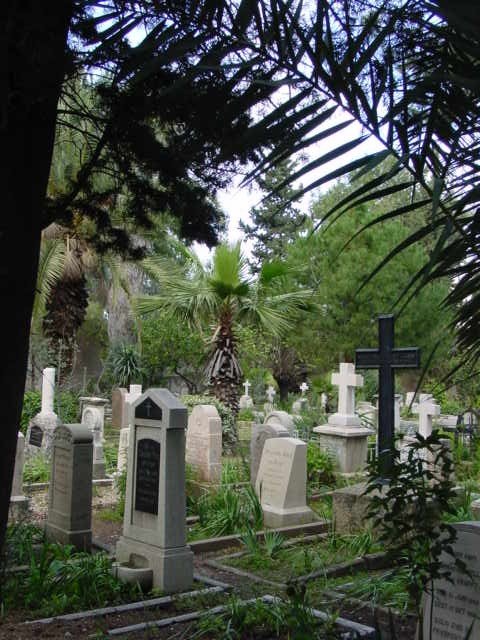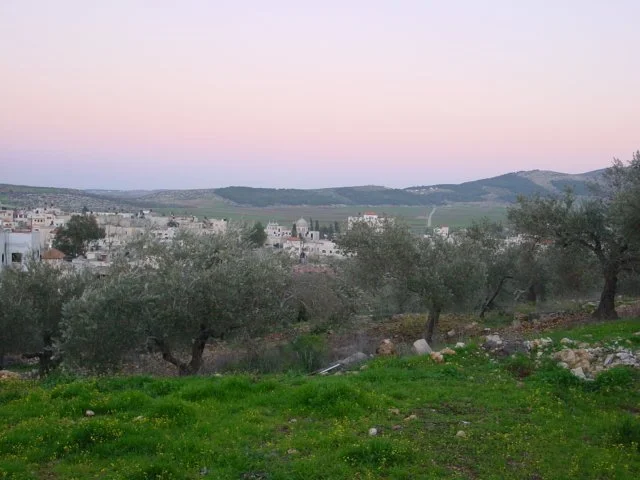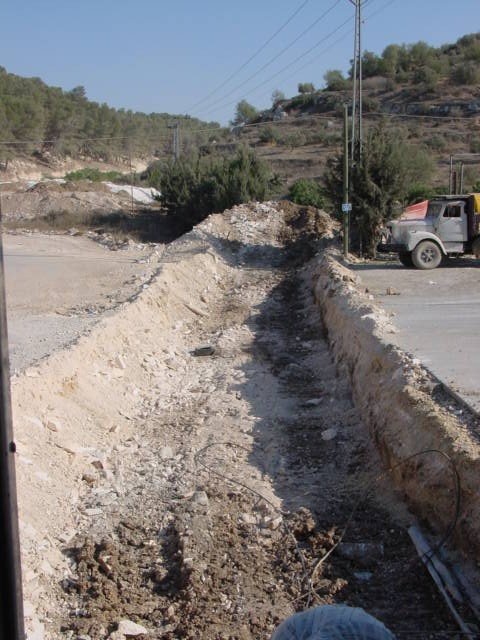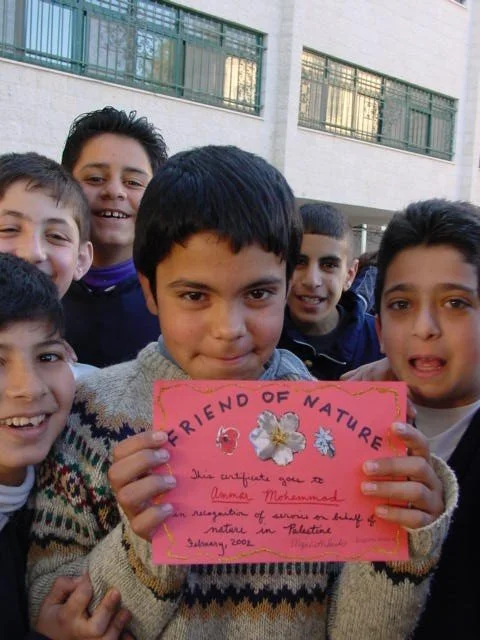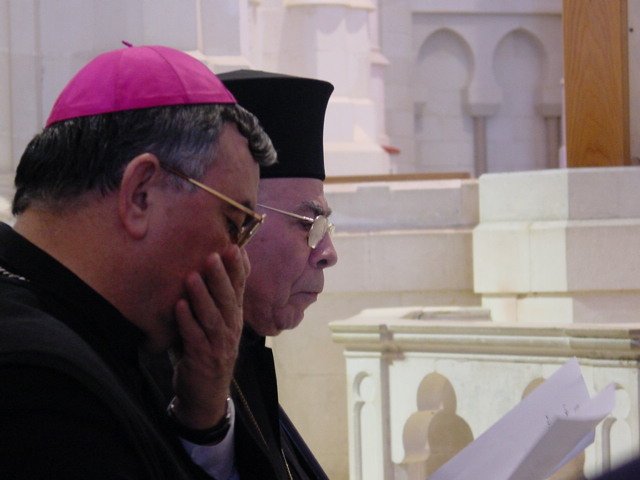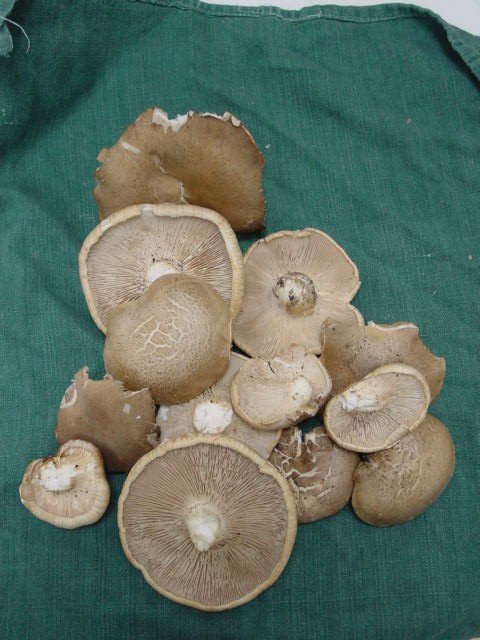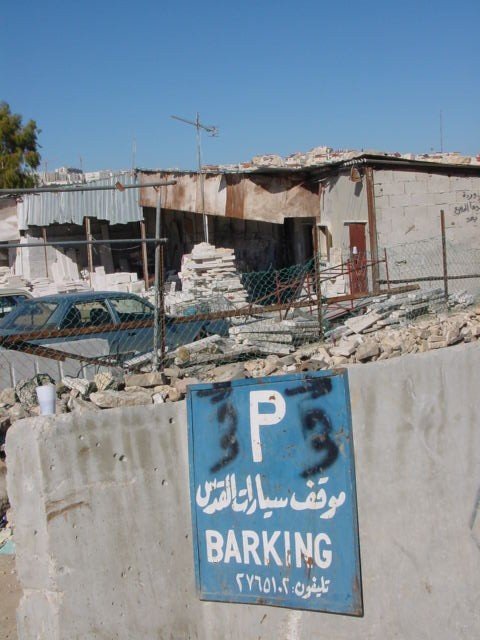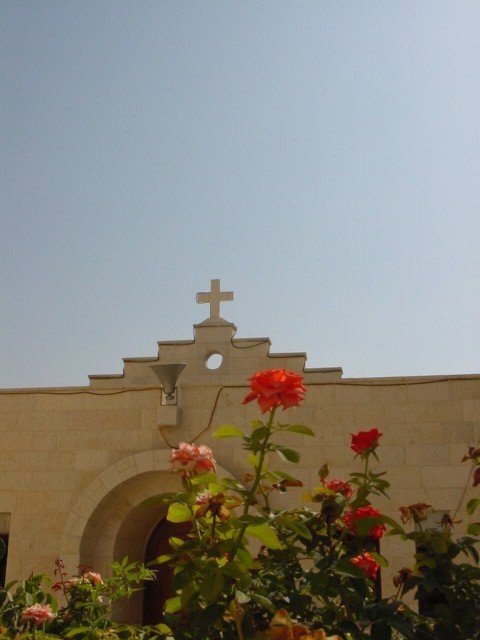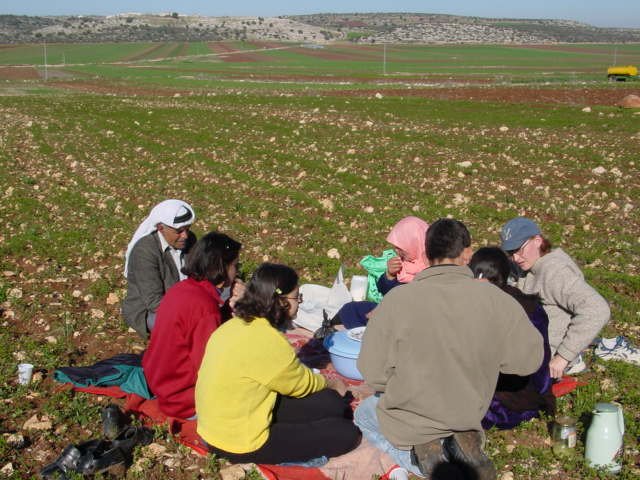February, 2002
From the school window we could see the funeral procession (in Islam, people should be buried the same day they die) as it headed up the road past the University.
In the afternoon, Elizabeth coached the girls at basketball practice - they've got a big same Saturday (it's not clear whose more nervous, the players or the coach!).
We noticed that the gas station has a department store attached to it - the place advertises bridal goods and wear in particular. A bizarre little oasis of dead commerce in the midst of a warzone.
Just because a Palestinian has official permission to travel doesn't mean it will be accepted by soldiers at a particular checkpoint at a particular time.
Being a Hebrew Bible prophet, Elijah is elevated by the three faiths that predominate here - Christian, Jewish, and Muslim, and all three had come to pay their respects.
Today we turned into typical Holy Land "pilgrims," torpedoing through as many holy sites and churches as possible. We figure that three years here should allow us at least one day like this.
Our mentor in this whole endeavor is the Rev. Dr. Fahed Abu-Akel, a Presbyterian pastor in Atlanta. He was born in Kufr Yasif, and his family still lives here.
The soldiers are usually just bemused by the insane foreigners who are choosing to live in the West Bank, and we are usually given a superficial security check (passports, a question or two).
That means six Americans who have left in the last week - all for various reasons, but it's depressing to lose such a significant part of our ex-pat community.
The lectionary this morning was from the Sermon on the Mount where Jesus calls the disciples to perfection "as your Father in heaven is perfect." A light load to carry.
The Qalandia checkpoint, which is between Jerusalem and Ramallah, is as close as most Palestinian people and drivers can get to Jerusalem.
The roadblock was open, but there were those nasty tire-popping spikes lying across the road. The Israeli soldiers didn't seem to worry that cars were waiting.
Fr. Hatem thanked them for their solidarity and their encouragement for the Palestinian Christians of Israel.
We had to brave the chaotic roads along the way - main roads have been cut, and the settlers' bypass road we used to take back in the days of vehicle-owning is now closed to all but settlers and soldiers.
The Melkite Church here has fallen into severe disrepair after sixteen years of neglect, though the community remains and worships among Zababdeh's other parishes on Sunday mornings.
Even with all that's been happening in Jenin lately, Marthame was assured that all was 'aadi - that is, normal.
Elizabeth took a walk in the hills, to see what was coming up and prepare for the 7th grade nature trip tomorrow.
But here, in a land where hundreds (becoming thousands) have been killed both in and out of combat, a murder is a rarity.
There was also a surprisingly extensive environmental center with natural specimens and displays about pollution, water issues, recycling and other local concerns.
The Scripture was Jesus calming the storm on the sea (Matthew 8:23-34). Hossam asked the question, "If Jesus is already risen, why do bad things continue to happen?" You know, something light to tackle in a ten minute homily. No better question to ask these days in this place.
A Palestinian critique of Western culture, and perhaps rightly so, is that it is anti-social, private, and alienating.
We joined the school's Islam teacher and her family for a picnic. We lugged a couple of blankets, the requisite tea and coffee, and a big bucket of tabboule (Arabic salad) out to feast in the fields.




